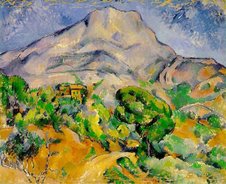 Updated 25th March 11:50
Updated 25th March 11:50
I mentioned in the last but one post that we celebrated our daughter's success in getting her MRCP with a botttle of wine. But this was not just any bottle of wine ( to echo that seductive voice on the Sainsbury ad). This one came from the display rack in the wine store which has a lockable bar that clamps the premium wine in place, preventing a quick exit with one under the coat (not that I would ever dream of doing such a thing).
So what did I think of the '96 Margaux, given it's the most I have ever paid ?
Hugely underwhelmed is the answer, which is what I now say about the majority of clarets. And always for the same reason - oakiness predominating over grapiness.
Last night I did a bit of googling, but in unashamed charlatan fashion, seeking facts that would support my position. That meant ploughing through pages of stuff about how the French initially chose oak for their barrels, because that hard, generally close grained timber is ideal for allowing the wine to mature. And it is recognized that the wine acquires an oaky flavour in the process, which can be controlled to some extent, because new barrels add a lot of oakiness, old barrels very little, so that wine can be switched from old to new barrels, and even back again, to get the desired degree of oakiness. And it's all traditional, we are told; it's been going one for centuries blah blah blah.
But so far I haven't found what I've been looking for - the killer fact that would nail once and for all this intrusion of woodland into wine-making. Namely that the invasion of oak flavour was tolerated initially because the oak resins allowed the wine to be kept, and matured, for longer. There was a trade off, in other words. If you wanted the flavour of mature grape, then an accompaniment of resinous old oak was the price you paid.
Consider for one moment that British substitute for wine - namely the barley-based ales and beers. They have been "hopped" for centuries, and Kentish hops impart a distinctive flavour. But when I visited a brewery, there was not attempt to hide the original purpose of the hops. They were there, originally at any rate, as a preservative. That's because any solution of alcohol, exposed to air, turns to vinegar, due to the action of aerobic Acetobacter, whose spores are everywhere in the air. Having stumbled by accident on the antiseptic properties of hops, brewers no longer needed to rely on high alcohol content as a preservative, and could then use less barley, and produce beer more cheaply, and which had a longer cellar life.
The Greeks developed even more robust means of preserving certain wines - by tossing lumps of pine resin into the wine, to create retsina. But we all know one can develop a taste for the stuff, even if it does taste like turps.
Resins - now what are they ? They are substances that trees and plants produce to protect themselves against microrganisms like fungi and bacteria. Oak has resins. So you can guess where my thoughts are heading: storing wine in oaken casks did not just protect against leakage: it added a touch of what might crudely be called disinfectant, without which there would have been tremendous spoilage of wine if they had been stored for too long.
Over time , our palates have become accustomed to the natural preservatives used in beers and wines, and that includes the oaky flavour of a mature claret, to the extent that it's supposed to be a prized characteristic in its own right, and winemakers now go to great lengths to control or enhance that oakiness. See link
But if you have ever tasted a mature red wine that is still predominantly grapey, perhaps because it's been protected by its own tannins, or by its high level of alcohol, or by being kept in the right kind of old oak barrels, then, if you are like me, you will be irritated at paying an arm and a leg for a bottle of 'upmarket' claret that hits you with an oakey instead of grapey flavour.
One suspects that there's probably a supply-and-demand problem here ; grapey unadulterated wines are a dicier prospect, without all those additional oakey resins to keep them sterile.
Ipso facto, one tends to be offered oakey wines, even if, like me, you are somewhat dismissive of the genre, suspecting that one is the fall guy for a centuries old con that's as old as the trees ( well, mature oaks, anyway ). Never mind the flavour, just taste the additives!
I've asked my wine merchant to recommend clarets and other reds that are grapey, not oakey, but one suspects from his reaction that no one's asked him that before. ....
Maybe we need a wine equivalent of that German standard for beer, Reinheitsgebot, which specifies barley, hops, water and yeast, period. In other words, no additives, whether modern, or just there as a result of some "happy" accident of history.
But that would mean specifying an inert container, eg stainless steel, or glass, for storage and maturation. That's hardly designed to seduce palates, is it ? But at least it doesn't assault them.
email from Louise: 25th March 11:50
Did you decant the Rausan? It was a young wine for a Bordeaux and needs to be opened and decanted at least 6 hours before drinking. Despite popular belief, the younger the wine, the longer the need for opening and decanting. An old wine should only be opened at the last minute and if necessary, decanted (this is only to avoid the sludge, not to develop the flavours which will rapidly disappear in an old wine).You will not get a 'grapey' wine from Bordeaux - the wines from there are extremely tannic like the wines from the Languedoc. For a 'grapey' wine I would suggest a wine from the Loire Valley, such as a St. Nicholas or otherwise a young Bourgogne - you could go as far south as Mercurey for that, just about ...
A young wine, you say Louise ? 1996 ? I hardly think that's a young wine, even if it can stand years or even decades longer in the cellars.
There was no sediment. This and other wines from the chateau go through a fining procedure with egg whites, repeated racking etc.
The man in the shop recommended we put it into the decanter 30 minutes before serving.
I don't consider tannins to be at odds with a grapey flavour. Even fresh black grapes can have their sweet pulp given a slight bitter edge from the skins, which is, of course, where the tannins are concentrated. I see no reason in principle why a Bordeaux cannot be grapey/tannic, provided it is matured in old barrels, preferably ones that have been recycled, "second hand" if you like.
Comments welcome, but only by email: sciencebod01@aol.com
skip to main |
skip to sidebar


Antibes (Monet)

Mont.St. Victoire (Cézanne)

I'm looking after the original

Colin's dinosaur (1959, school pottery class)

Bugatti Veyron
Latest Comments
Get this Recent Comments Widget
Link to new sciencebuzz blog (started Aug 2009)
Link to Home page
About Me
- sciencebod
- Colin Berry, aka sciencebod, is a retired PhD researcher/teacher/academic who has worked in industry, medical schools, schools, food and biomedical research (mainly in the UK, but also in W.Africa and the United States). He's best known for his work on RESISTANT STARCH, recently described as "the trendiest form of dietary fibre".
See also his specialist Shroud of Turin blog on www.shroudofturinwithoutallthehype.wordpress.com
with over 350 postings to date. Oh, there's a second specialist site devoted to Stonehenge, Silbury Hill with some radical new thinking: https://sussingstonehenge.wordpress.com/
§§§§§§§§§§§§§§§§§§§§§§§§§§§§§§§§§§§§
Previous Posts
-
▼
2007
(109)
-
▼
March
(14)
- Has Cameron gone too far ?
- Competition 2 - suggest a caption
- Competition - Name the most-botched film scene
- Telegraph invites three "Your View" regulars to b...
- Shostakovich - the great survivor
- Response to critics
- Arts of oak
- Blogospheric tactics for beginners
- Scam and spoof emails and letters
- Is time travel just the stuff of science fiction ?
- Is Gordon Brown fit to be PM ?
- Our wasteful polluting society
- Blowing the whistle on an internet troll
- New era: post-sabbatical, post-humanist
-
▼
March
(14)
§§§§§§§§§§§§§§§§§§§§§§§§§§§§§§§§§§§§§§§§§§§§§§§§§§§§§§§§§§§§§§§§§§§§§§§§§§§§§§§§§§§§§§§§§§§§§§§§
Sites I currently visit
- Bloggers' toolkit
- Colin Randall's "Salut!"
- Daniel Hannan MEP, DT staff blogger
- Gigi's "French Windows"
- Jackie's London blog
- Louise in Switzerland
- maville.com (Antibes)
- New Dreams and Daemons
- Orange news & blogs roundup
- Roads of Stone
- Sarah Hague's "St.Bloggie"
- science buzz (my own new venture, started Aug 2009)
- Wikio news/Antibes

Antibes (Monet)
xxxxxxxxxxxxx
§§§§§§§§§§§§§§§§§§§§§§§§§§§§§§§§§§§§§§§§§§§§§§§§§§§§§§§§§§§§§§§§§§§§§§§§§§§§§§§§§§§§§§§§§§§§§§§§
§§§§§§§§§§§§§§§§§§§§§§§§§§§§§§§§§§§§§§§§§§§§§§§§§§§§§§§§§§§§§§§§§§§§§§§§§§§§§§§§§§§§§§§§§§§§§§§§
§§§§§§§§§§§§§§§§§§§§§§§§§§§§§§§§§§§§§§§§§§§§§§§§§§§§§§§§§§§§§§§§§§§§§§§§§§§§§§§§§§§§§§§§§§§§§§§§

Mont.St. Victoire (Cézanne)
Mona Lisa (Louvre, copy)

I'm looking after the original
§§§§§§§§§§§§§§§§§§§§§§§§§§§§§§§§§§§§§§§§§§§§§§§§§§§§§§§§§§§§§§§§§§§§§§§§§§§§§§§§§
Another landmark in Western art !

Colin's dinosaur (1959, school pottery class)
§§§§§§§§§§§§§§§§§§§§§§§§§§§§§§§§§§§§§§§§§§§§§§§§§§§§§§§§§§§§§§§§§§§§§§§§§§§§§§§§§§§§§§
§§§§§§§§§§§§§§§§§§§§§§§§§§§§§§§§§§§§§§§§§§§§§§§§§§§§§§§§§§§§§§§§§§§§§§§§§§§§§§§§§§§§§§§§§§§§§§§§
§§§§§§§§§§§§§§§§§§§§§§§§§§§§§§§§§§§§§§§§§§§§§§§§§§§§§§§§§§§§§§§§§§§§§§§§§§§§§§§§§§§§§§§§§§§§§§§§
§§§§§§§§§§§§§§§§§§§§§§§§§§§§§§§§§§§§§§§§§§§§§§§§§§§§§§§§§§§§§§§§§§§§§§§§§§§§§§§§§§§§§§§§§§§§§§§§
Search Words
- "President" Blair
- 1956 intake
- 1984
- 2012 Olympics
- 30 St.Mary Axe
- 57 year home loan
- A A Gill
- Accra
- Accra Academy
- acronym
- Adding Labels to margin
- aerial photo
- aerial photographs
- aerial view
- Afghanistan
- agricultural coop
- Ahmadinejad
- airport queues and overcrowding
- Aix-en-Provence
- alarmist story
- alcohol
- Alec Russell
- aliens
- alphabetical figure
- American
- Americanisms
- ammonia
- Amstrad
- Andrew Marr
- Anglo-Saxon
- Annie Leibovitz
- anti-science sentiment
- Antibes
- Antibes art display
- Antibes bollards
- Antibes' poorly lit port area
- Antiboulenc Society
- antioxidants
- April 1st
- Argentera
- art déco
- artificial desert oases
- Auberge de la Tour at Aups
- auction 3G contracts
- baguettes
- bar too close to church
- barbecue
- Basque bread
- Basques
- Bastion St.Jaume
- BBC
- BBC hyping of science
- BBC misrepresentation
- Bearsy
- belligerence
- Beta Blogger
- Big Brother
- Bill Bryson
- Bill Taylor
- Bill Taylor (Toronto Star)
- Billy Brag
- binoculars
- Biot
- Bishopshalt School
- bleach
- Blog Central
- blog moderation
- blog.co.uk
- Blogger
- blogger templates
- blogger's block
- blogging code of conduct
- blogging wikia
- Boadicea
- Boars Hill
- Bob Woolmer
- body weight
- Bolgatanga
- Bordighera
- botched film scenes
- Boulevard d'Aguillon Antibes
- brain damage
- brain stem
- Brian May
- Britannia
- Britannian
- British
- British identity
- Brits excluded from Google.co.uk
- bronchitis
- budget
- bungee jumping
- butts on display
- buy-to-let
- Cadiz
- Cagnes
- Cagnes Hippodrome
- Cagnes Salon du Palais Gourmand
- calories
- camera internal clock
- Cameron
- camper vans
- Cancer research
- candy floss
- Caravan Man
- carbon footprints
- carbon monoxide
- carbon offsetting
- Carcassonne
- Carrefour
- Castellon
- Celts
- censorship
- Chalet de la Maline
- Chateau Gourdon
- Chet Atkins
- China
- chlorine
- Cho-Seung Hui
- chosen tag failing to appear under Labels
- Christian Adam
- Citizen watch
- claret
- climate
- CO2
- Cobra committee
- Colin Berry
- Colin Randall
- collapse
- collision
- colonization of Mars
- comets
- competition
- Conforama
- Confortel Madrid
- Confortel Suites Hotel Madrid
- Conservative party
- constitutional monarchy
- copyright
- Corante
- Corfu tragedy
- correction
- cost to taxpayer of foot-and-mouth disease
- cot death
- Côte d'Azur
- cows
- crèches
- criteria for selecting students
- cybersensory overload
- Da Vinci Code
- daemon
- Daily Mail Thur 9 Nov
- Daily Telegraph
- Daily Telegraph Prescott editorial
- Daily Telegraph blog
- DailyCat ballou
- Daniel Hannan blog
- Darwin
- David Cameron
- david llewellyn
- David LLewellyn blog
- David Rennie
- Davos
- digg
- Digg "blog it" facility
- digg.com
- display of memorabilia
- divine retribution
- DNA
- Dominique de Villepin
- Dr Who
- dreams and daemons
- dreams and daemons format
- dust
- earthquakes
- eBay
- Ebro delta
- economic cost foot and mouth
- Eiffel Tower
- eiger
- electrolysis of sea water
- elements
- email scams
- embedding html
- English
- English identity
- equity release
- esterel
- ethics
- EU
- EU Constitution
- EU treaty
- Evesham
- evolution
- exercise
- factual errors
- faded carpet
- failed insurance claim
- faulty boiler
- faulty spotlight
- Fibonacci
- First stage of 2007 Tour de France
- flatus
- flood defences
- flooding
- Focus play Hocus Pocus
- Folkestone earthquake
- food packaging
- foot and mouth disease
- foot-and-mouth disease
- foot-and-mouth disease 2007
- foreign HGV
- freebies
- freelance journalist
- French
- French Riviera
- French Windows blog
- funniest film lines
- furthest distance
- Gaia hypothesis
- gap year
- gas
- genes
- genetics
- geoffrey dutton
- George Orwell
- George W Bush
- Ghana
- Gigi
- Gilles Savary
- glassware
- global warming
- global warming pretext for new taxes
- Glock
- God
- Golden ratio
- golliwogs
- Google Earth
- Google.co.uk
- Gordon Brown
- Gorges du Loup
- Gorges du Verdon
- Gourdon
- government snooping
- graduate debt
- greenhouse gases
- GROCE
- Guardian
- Guardian Comment is Free
- Guernica
- guest bloggers
- guest spot on Salut forum
- gun control
- gun lobby
- haemoglobin
- Harnden first report on Saddam hanging
- Harry Potter
- headmaster JJB Wolfe MSc PhD
- Heathrow demo
- Hell
- help files
- heritage
- Higgis
- Hillingdon
- hippo
- hippocampus
- Hippodrome
- His Dark Materials
- His Toniness
- holy land
- hoodies
- Hotel Grand Canyon du Verdon
- House Un'American Activities Committee
- html/java code
- http://www.dreamsanddaemons.blog.co.uk
- hydrogen gas
- hydrogen-bonding
- hypercritical
- Hypocras
- Ian Black
- Ice Cold in Alex
- ice-cream parlours
- identifying locations
- inconspicuous links to blogs
- incubus
- Independent
- India
- intelligent design
- interest
- internet clones
- internet harassment
- internet sniping
- internet stalking
- internet trolling
- internet trolls
- Interstate highway 35W
- Iranian tv
- Iraq
- Irish
- Islamist extremists
- Islamist sect
- Islamist terrorists
- Isle of Wight
- Italian border
- Italy
- Jacques Chirac
- JAMA
- Jamie McNab
- Jane
- Jaume Plensa
- Jemima Kiss
- Jim Butterworth
- John Prescott
- John Redwood
- jokes
- Juan beach restaurants
- Juan casino
- Juan-les-Pins
- Ken Livingstone
- Ken Pearce MA
- Ken Shuttleworth
- kiln
- La Motte
- language
- last come first served
- lastminute.com
- lastminute.com refund
- Layout mode
- LCD
- leaking roof
- left-hand drive
- legionella
- Leibovitz
- lila das gupta
- limescale
- litter
- litter czar
- LittleandLarge Telegraph blog
- loan repayment
- London
- London 2012 Olympics overspend
- London congestion charge
- London Eye
- London Marathon 2007
- Lord Foster
- Lord Palmerston
- Louise
- Luceram
- Lund
- M.Fernandez
- M1 motorway bridges
- Maddie
- Madrid
- Make us Laugh competition
- making desert bloom
- Marathonfoto
- Margarete's blog
- Marina (Baie des Anges)
- Mark Boardman
- Mars
- mathematical formulae
- medieval monastery
- Mediterranean climate
- Meissonier
- Melissa Whitworth
- Menton
- Met office
- Meteo Clock
- meteors
- methane
- Michael McCarthy
- Minneapolis bridge collapse
- Minneapolis bridge disaster
- misleading hotel description
- mistral
- Möbius strip
- model galleon
- model ship
- molecular self-organization
- Montparnasse skyscraper
- Montparnasse Tour
- Moon
- motorway
- motorway planting
- mountain
- mountain backdrop
- mountains
- Mr. J.K.Okine
- MSM "moderation"
- MSM censorship
- muscadine grapes
- music
- my eldest son
- My Soapbox Inc
- My Telegraph
- My Telegraph write up
- Naked Gun
- Nangodi
- new look Dreams and Daemons
- New template for this blog July 2007
- new universities
- New Year's resolutions
- New York Times
- newspaper headlines
- Newton
- Nice airport bus
- Nice-Matin
- Nick Robinson
- Nicolas Sarkozy
- nitric oxide
- nitrogen trichloride
- no clues here
- Noah's Ark
- Nomad
- Nomade
- non-wysiwyg Blogger
- Norm Haskett
- nostalgia
- oaky wine
- Office Aggronyms
- Old Antibes
- olive trees
- Oppenheimer
- OrganGrinder
- origins of British
- Orwellian doctoring of film footage
- Ospedaletti
- other blogs
- Oxford
- oxford v cambridge boat race
- Oxfordshire
- Pakistan cricket team
- Palace photoshoot
- panorama
- Paris
- Pat Rafter
- Peace Corps
- Ped
- pejorative
- pensions raid
- periodic table
- Perseid meteor shower
- Personal Tutors
- Peta Thornycroft blog
- Peter Jackson
- Peter Mandelson
- Peter Stott
- phare
- PhD oral examination
- PhD thesis
- phil slocombe
- Philip Johnston
- Philip Pullman
- photocell
- Picasso
- pilota
- pito
- piton post
- Plage Ponteil
- Planet Mars
- plateau de la Garoupe
- pneumonia
- polite
- Pont d'Artuby
- post-humanism
- Pottermania
- priority boarding passes
- problems with draft option
- problems with entering text
- profile of past teachers
- property deeds
- proportional representation
- pulled blog
- purpose of university education
- put-down
- quality of Sky staff
- Queen
- Queen Elizabeth
- questionnaire
- queues for London Eye
- Rachel Roth
- racial stereo-typing
- re-mortgaging
- rebecca davies
- recycling centres
- red sky at night
- red wine
- reel life blog
- registration
- religious tubthumpers
- remaking film scenes
- repayment mortgage
- resistant starch
- response to my critics
- resveratrol
- Retiro Park Madrid
- Reunion
- Richard Gott
- Richard of Orléans
- rip-off supermarket prices
- Riviera of flowers
- Riviera Times
- roaming charges
- Robin Berry
- Romans
- rosé wine
- Round Britain Whizz
- royal fly on wall documentary
- Royal Navy sailors
- rubbish dumps
- run-down Pisa
- Rwanda
- Saddam execution
- Sahara desert
- saharan dust possible source foot and mouth
- Sally Peck
- Salon du Palais Gourmand
- Salut
- Salut Forum
- Sancerre wine
- sarah hague
- Saturday 7th September 2019
- Sauron's eye
- scams
- schools
- Scots
- Scottish Evening
- seated journalists
- secondary metals
- Ségolène Royal
- serotonin
- Shakira
- Shane Richmond
- Shane Richmond blog
- shane richmond spoof blog
- shoddy goods
- shooting stars
- short story
- shostakovich
- shostakovich first concerto
- simon coulter
- simon coulter blog
- Simone_w
- simulated hands
- Sir Isaac Newton
- Sir James Lovelock
- Sir Patrick Moore
- sirtuins
- Sky news
- slow moderation
- snow
- snowflakes
- social atomisation
- software bugs
- solar energy
- solid silver knife handle
- Song title called "Illegal"
- Sorry
- Southend-on -Sea driest place
- space-time continuum
- Spain
- Speakers' Corner
- special relationship
- speed writing
- spoof letters
- spreadeagled
- stalin
- state security
- Stephen Oppenheimer
- Stokenchurch Gap
- street beggars
- struvite
- sudden infant death syndrome
- Sudoku
- suggest caption
- sulfites
- sulfur dioxide
- sulphites
- sulphur dioxide
- summer heat haze
- Sunday Telegraph
- Sunday Times 29 Oct 2006
- Sunday Times declining quality
- Sunday Times Oct 29 2006
- Suw Charman
- swansong
- Swiss bank
- Swiss Re tower
- Taj Mahal
- taking a break
- Tardis
- Tax Freedom Day
- tax-cutting proposals
- Technorati
- teenaged bloggers
- Telegraph
- Telegraph "Your View"
- Telegraph blog
- Telegraph Bloggers Open House
- telegraph blogs
- Telegraph censorship
- Telegraph editor
- Telegraph editorial re BBC insult to Queen
- Telegraph editorial re state of French democracy
- telegraph guest bloggers
- Telegraph invitation
- Telegraph leader
- Telegraph Make us Laugh
- Telegraph moderation
- Telegraph Speakers Corner
- Telegraph Speakers' Corner
- Telegraph Your View
- Thames estuary desalination plant
- The Egg
- The Gherkin
- The Phoenix Egg
- time travel
- time travel conundrums
- time warps
- Times
- Times comment
- Toby Harnden
- Toby Harnden blog
- Toby Harnden Telegraph blog
- toilet
- Tony Blair
- TOTP
- Tour de France
- Tour Montparnasse
- trade waste
- UK constitution
- UK floods
- UK sailors held by Iran
- UK universities
- Upgrade Template
- US gun culture
- US presidential campaign
- USA
- vaccination against foot-and-mouth
- Velux
- Venice admission fee
- vernissage
- verrerie
- video clip
- viewing table
- Virginia massacre
- Virginia tech massacre
- visibility
- viva voce exam
- viva voce examination
- Vodafone
- weather
- weighbridge
- Welsh
- White House press conference
- widgets
- Will Lewis
- wine
- wine barrels
- winter sun
- World War 2
- worst TV shows
- Yemen rainfall compared to London
- YouTube
- Zimbabwe blog
- Zorry about ad below - comes with hit counter
My next car

Bugatti Veyron
§§§§§§§§§§§§§§§§§§§§§§§§§§§§§§§§§§§§§§§§§§§§§§§§§§§§§§§§§§§§§§§§§§§§§


